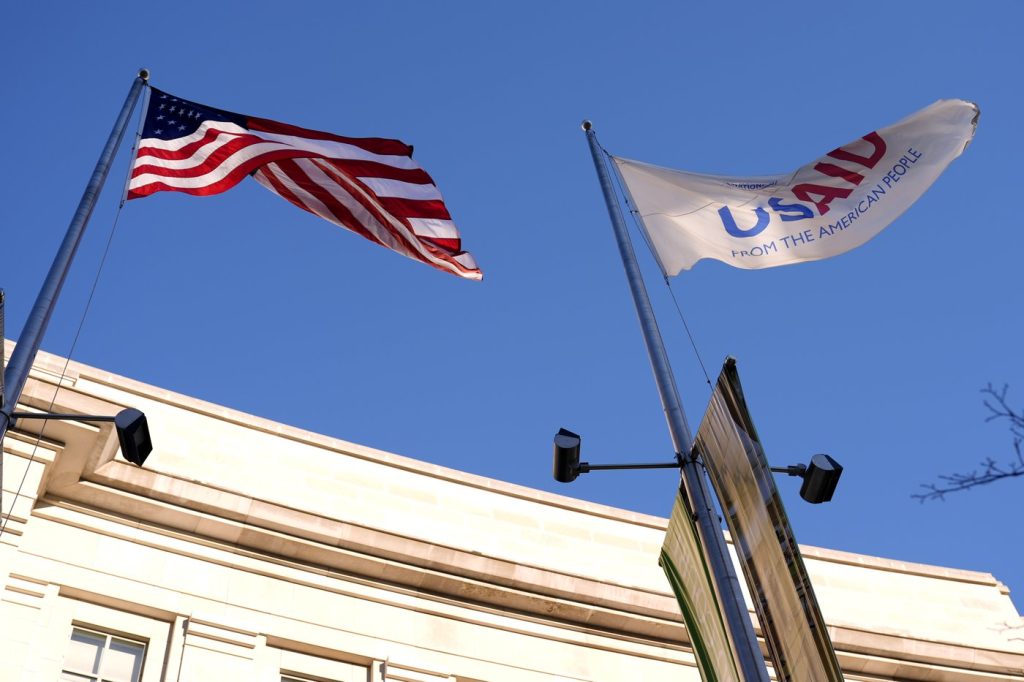PRISTINA, Kosovo (AP) – Numerous non-governmental organizations in the Western Balkans have found themselves in a precarious position following U.S. President Donald Trump's sudden decision to freeze foreign aid for three months. This halt in funding has particularly impacted groups that depend on the U.S. Agency for International Development (USAID) for their operations, which include providing essential services to marginalized communities and promoting critical reforms in the judiciary, finance, and energy sectors.
In Kosovo, USAID has played a significant role in fostering economic growth by supporting small and medium-sized enterprises, as well as assisting the country's integration into European Union and Euro-Atlantic institutions. Since 1999, the U.S. has invested approximately $2 billion (1.93 billion Euro) in Kosovo, with over $1 billion (967 million Euro) specifically allocated through USAID. The freeze announced by Trump affects all programs and grants unless a waiver is granted by the Secretary of State. Only life-saving humanitarian assistance programs are permitted to continue during this period.
Blendi Hasaj, of the GAP Institute, noted that USAID has suspended funding for 18 projects that collectively amount to around 157 million euros ($162 million). This suspension has direct consequences on public institutions that handle taxation, procurement, and various operational processes. Arjana Qosaj Mustafa, representing the Kosovo Women’s Network, which comprises about 140 NGOs, expressed concerns over funding interruptions that have left some organizations without necessary financial support. “Everybody is uncertain what will happen and how this will continue,” she stated, highlighting the heightened worry in a region already marked by instability.
The freeze has raised particular alarm regarding funding aimed at gender and diversity projects, which are particularly crucial within Kosovo's conservative societal context. U.S. assistance has historically bolstered women’s groups, advocated for women's rights, property rights, and facilitated economic development among women. Mustafa warned that without proper support, women’s groups could find themselves stranded, complicating ongoing efforts to promote gender equality.
The backdrop to this funding freeze is the fragile state of Kosovo-Serbia relations, which remain tense since the end of the 1998-1999 war. The conflict primarily involved Serbian government forces and ethnic Albanian separatists, resulting in about 11,400 deaths, predominantly among ethnic Albanians. Although Kosovo declared its independence from Serbia in 2008, it remains unrecognized by the Serbian government. Attempts by the European Union and the United States to facilitate normalization between Kosovo and Serbia have yielded limited results.
Milorad Dodik, the president of a Serb-dominated area in Bosnia, has publicly welcomed the suspension of U.S. foreign aid, claiming it has been utilized to “dehumanize” societies and remove politicians globally. Meanwhile, Emina Bosnjak from the Sarajevo Open Center emphasized that marginalized groups are likely to experience adverse effects because USAID has been instrumental in raising awareness and engagement against discrimination, violence, and hate speech.
“Stronger narratives that stand against human rights and stand against democracy and rule of law will actually become more visible,” Bosnjak warned, illustrating the potential for negative shifts in societal attitudes in the absence of USAID’s support.
In summary, the freeze on U.S. foreign aid poses a significant challenge for non-governmental organizations in the Western Balkans, particularly in Kosovo, where the impact on various social services and reforms is already being felt. This situation evokes concerns regarding gender equality, minority rights, and the overall socio-political climate in a region still grappling with its post-conflict legacy.










